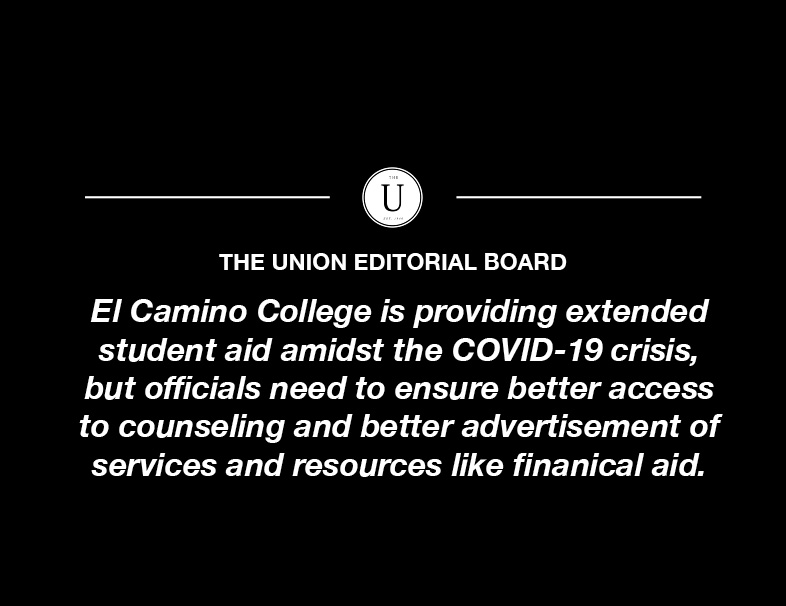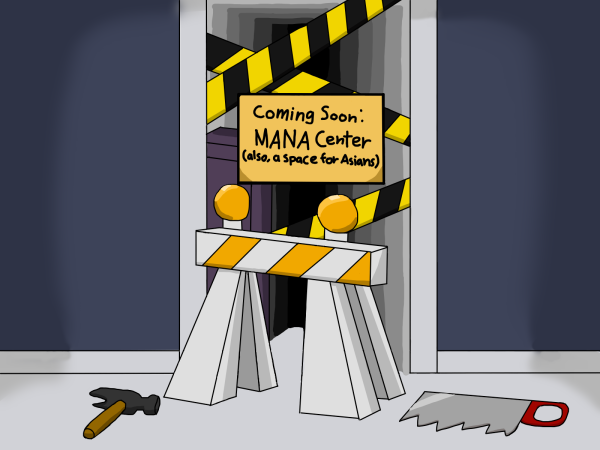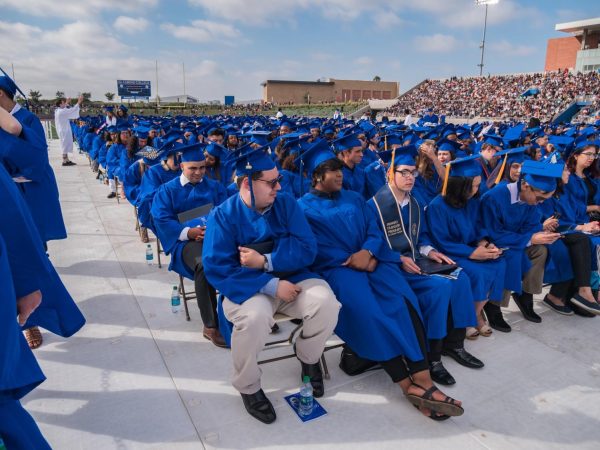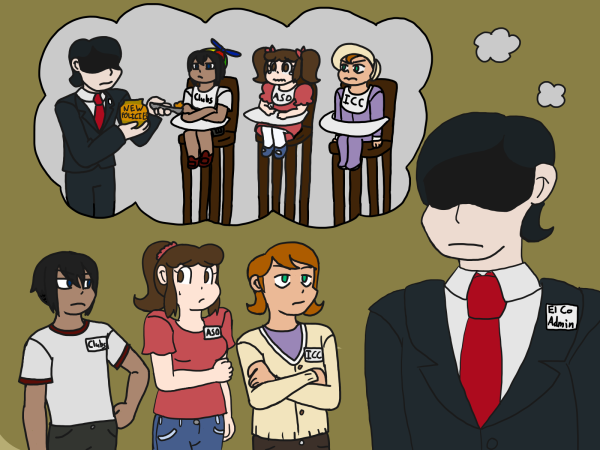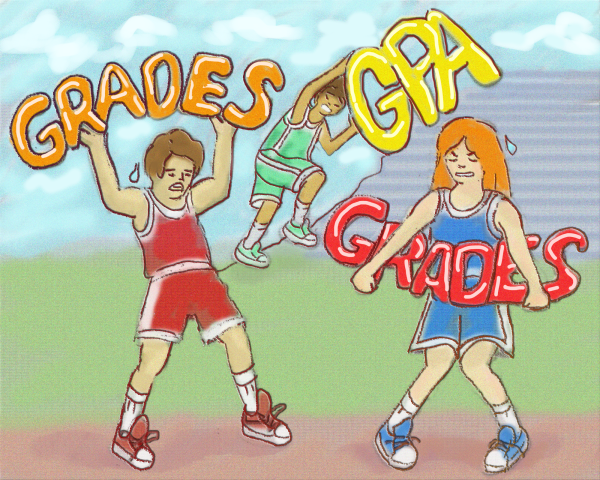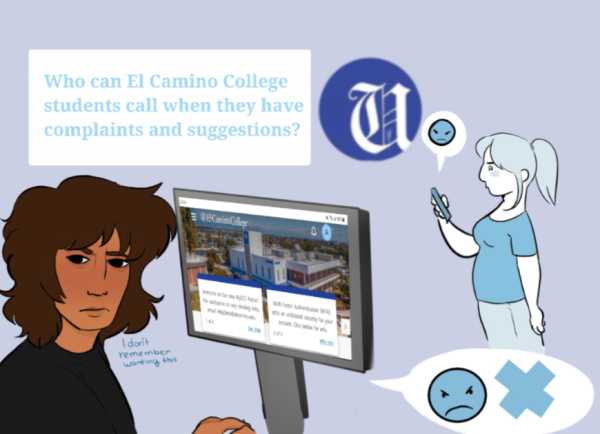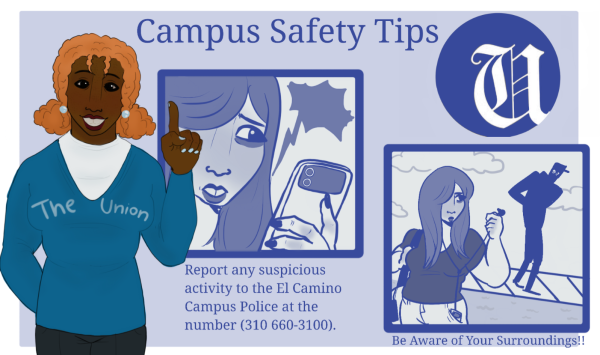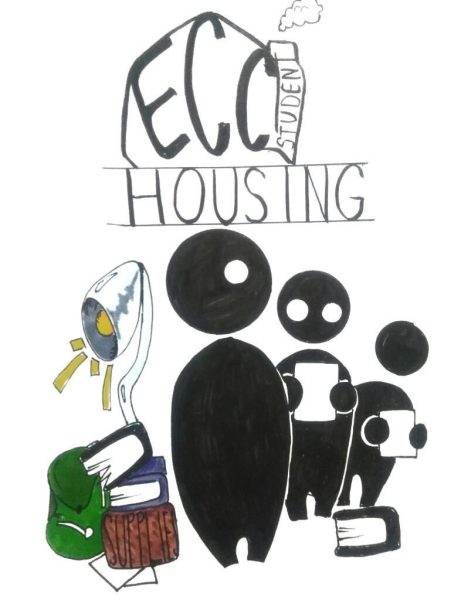As resources become available to students, officials must do a better job at advertising them
As El Camino College students return to classes this fall, they will be met with something short of a comfortable welcome.
In trying to schedule their classes, transfer, find financial aid, schedule counseling services and navigate an already-chaotic semester, students have reported waiting days or even weeks to see an opening for a counseling appointment. Students have also experienced a lack of communication regarding scholarship and grant opportunities.
Editors at The Union have experienced this as well, along with issues logging into Cranium Cafe with their ECC emails and dropped calls with counselors due to glitches in the system.
Attempting to reach the departmental emails has been difficult for editors at The Union as they either refer them to counseling, giving brief answers that lead to long email chains solving issues that could have been solved in two messages or simply take days to respond.
Additionally, options for financial aid are not being publicized enough by ECC or the state of California. The Coronavirus Aid, Relief, and Economic Security (CARES) Act has been signed into law since March 27 and there are some students still wondering why they have a letter from a company called BankMobile on their desk, assuming it’s junk mail.
Some students have also complained recently on ECC social media groups about not receiving summer semester refunds despite being nearly three weeks into the fall semester.
The CARES Act also allows unused work-study funds to be used for “supplemental grants” and allocates for work-study payments to continue for up to one full academic year despite campus closures. However, work-study students on the editorial board of The Union put out of work, who were continually paid through last semester, have received no word of continued payments this semester.
The state of California is not particularly helpful in that category either. In an August 27 Town Hall meeting with the Chancellor of California Community Colleges, Eloy Ortiz Oakley was asked by a student how they could find more information about access to scholarships and financial aid.
Oakley suggested that students use the California Student Aid Commission (CSAC) website and icanaffordcollege.com to find more information, however the CSAC website is vague and difficult to navigate. Icanaffordcollege.com primarily provides info for applying to and receiving FAFSA which some students may not even qualify for because their parent’s income is considered too high.
Moreover, ECC has a “Warrior Emergency Grant” funded through the ECC Foundation that many students don’t even know about because the most recent notification sent to students via email is a small paragraph inside of an email from President Dena Maloney with a subject line reading, “gratitude for good news” on April 17.
Since then, there have been email notifications entailing eligibility for the CARES Act and details about direct aid to students, but no information about the other programs that the CARES Act funds. This is also ineffective because many students don’t check their school email or even know how to access it.
The editors of The Union are not attempting to argue that ECC hasn’t done an excellent job at handling the coronavirus pandemic with the many resources they’ve been able to provide. The virtual continuation of Student Health Resources alone is a solid effort at assisting students, and one that should be applauded.
We simply ask that available aid is advertised more and access to counseling is made a more seamless experience for both counselors and students.


